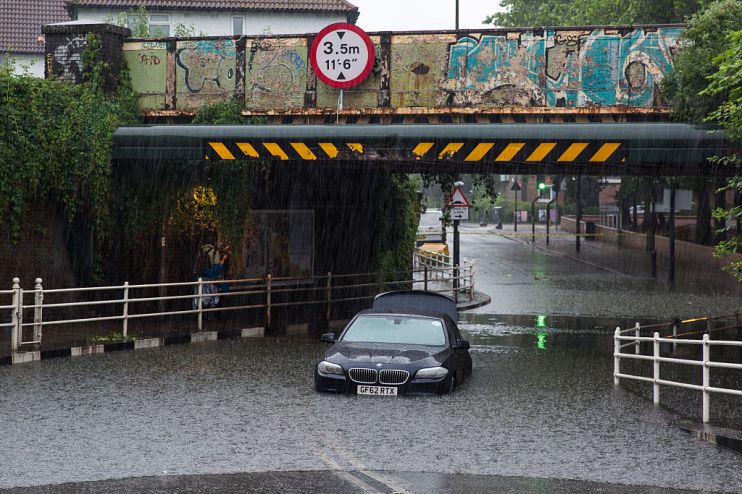London flooding: More rain as Londoners call out climate change

London saw more rain yesterday which flooded roads, tube stations and homes, just days after health warnings were issued amid 30C heat.
Government flood warnings and alerts have been issued to several areas around the city, with neighbourhoods nearby rivers hosting the most warnings.
Areas like Harrow, Hillingdon, Ravensbourne through Lewisham, Bromley and Greenwich have been issued amber flood alerts.
Neighbourhoods surrounding the River Wandle, like Wandsworth, Merton, Lambeth, Croydon and Sutton, have also received amber alerts, as well as areas around the lower River Lee.
Warnings made their way to London’s outer boroughs, with alerts for those in West Barnes and the Beverley Brook area in Merton, Sutton, Kingston upon Thames, Richmond upon Thames and Wandsworth.
While South and West areas were hit hardest in the flooding seen two weeks ago, scenes of cars shakily navigating awash roads and travellers held up in bus shelters to escape the rising water were spotted in parts of East London yesterday.
Climate change
With roaring sun at the start of the week, an increasing number of Londoners have called out the extreme change in the weather – when most thought the summer was here to stay.
The ‘extreme heat’ recorded just days ago prompted an amber extreme heat warning from the Met Office as well as a level three heat-health alert from Public Health England.
The heatwave brought on England’s hottest day of the year so far, reaching 32.2C at Heathrow Airport in West London.
The previous high for the year was 31.6C, which was also recorded at Heathrow just a few days prior.
Deadly floods have been spotted across China and Europe, alongside extreme heat of 49C in Canada as well as ‘tropical’ heat in Finland and Ireland.
A key characteristic of climate change is a shift towards extreme weather, scientists have predicted.
Over the next two weeks, top scientists with the Intergovernmental Panel on Climate Change (IPCC) will finalise the first instalment of its sixth Assessment Report on climate change.
The report will update the science around greenhouse gas emissions and projections for future warming and its impacts ahead of the UK-hosted UN climate conference COP26.